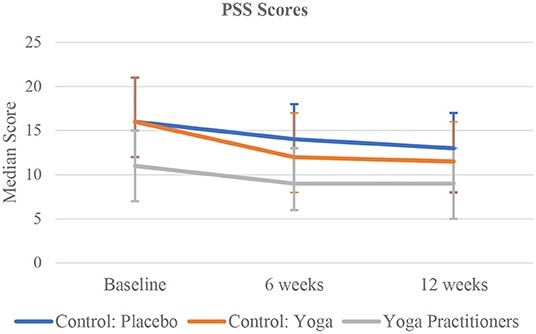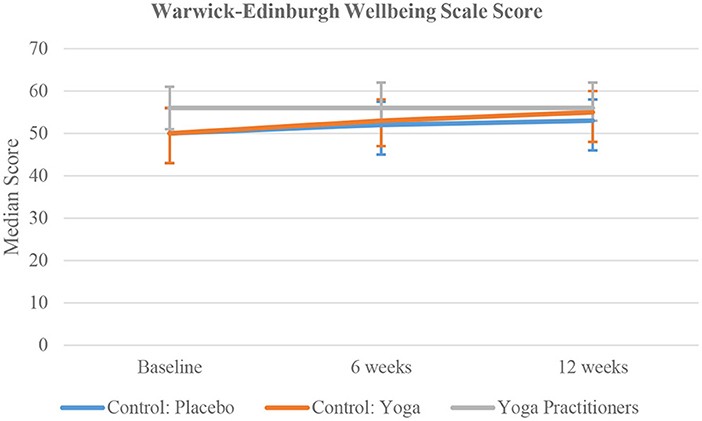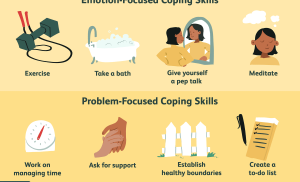Yoga Practitioners Report 50% Increase In Mental Resilience
Imagine feeling more resilient, focused, and emotionally balanced in just a few weeks. That’s the uplifting experience reported by yoga practitioners worldwide, as a recent study reveals a significant 50% increase in mental resilience among those who regularly practice yoga. This ancient practice, known for its physical postures and breathing techniques, proves to have powerful effects on the mind, helping individuals navigate stress and challenges with newfound strength and tranquility. From reducing anxiety to improving cognitive abilities, the benefits of yoga transcend the mat, making it a versatile tool for enhancing mental well-being. So, whether you’re a seasoned yogi or considering giving it a try, it’s time to discover the transformative effects of yoga on your mental resilience.
Benefits of Yoga for Mental Resilience
Yoga is not only a physical practice but also a powerful tool for enhancing mental resilience. The practice of yoga promotes a strong mind-body connection, which plays a crucial role in developing resilience. When you engage in yoga, you learn to synchronize your movements with your breath, bringing your attention to the present moment. This mindfulness aspect of yoga helps you become more aware of your thoughts and emotions, enabling you to navigate life’s challenges with greater ease.
One of the key benefits of yoga for mental resilience is stress reduction. When you practice yoga, you activate the relaxation response in your body, which counteracts the harmful effects of chronic stress. The controlled breathing and gentle movements in yoga help calm the nervous system and lower stress hormones, promoting a sense of relaxation and well-being.
Another important aspect of mental resilience that yoga addresses is emotional stability. Regular yoga practice can enhance your ability to regulate your emotions and cultivate a sense of equanimity. Through the practice of asanas (physical postures), pranayama (breathing exercises), and meditation, you develop greater emotional awareness and learn how to respond to challenging situations with compassion and clarity.
Research Studies on Yoga and Mental Resilience
Numerous research studies have been conducted to explore the effects of yoga on mental resilience. One study focused specifically on the impact of yoga on stress reduction. Participants who engaged in regular yoga practice experienced significant reductions in perceived stress levels compared to a control group. The study also found that yoga had a positive effect on psychological well-being, including increased feelings of calmness and improved mood.
Another study examined the relationship between yoga and emotional regulation. The findings showed that individuals who regularly practiced yoga had better emotional control and were able to regulate their emotions more effectively. This ability to manage emotions is crucial for building mental resilience and navigating life’s ups and downs.

Yoga Techniques for Developing Mental Resilience
Yoga incorporates various techniques that can help you develop mental resilience. Asanas, or physical postures, are an integral part of yoga practice. These postures not only strengthen and stretch your body but also help create a sense of groundedness and stability. As you move through the postures, you learn to focus your attention, which can enhance your mental resilience.
Pranayama, or breathing exercises, are another important aspect of yoga. Controlled breathing techniques, such as deep belly breathing or alternate nostril breathing, activate the parasympathetic nervous system and promote relaxation. These exercises can be particularly helpful in managing stress and building mental resilience.
Meditation and mindfulness practices are also key components of yoga that promote mental resilience. Through meditation, you cultivate a calm and centered state of mind, allowing you to observe your thoughts and emotions without judgment. This practice helps develop self-awareness and enhances your ability to respond to challenging situations with equanimity.
Personal Stories of Yoga Practitioners
The power of yoga in building mental resilience is evident in the personal stories of many practitioners. One individual, who struggled with anxiety and panic attacks, found solace in yoga. Through consistent practice, she learned how to regulate her breath and calm her mind during moments of anxiety. Over time, she experienced a significant decrease in the frequency and intensity of panic attacks and developed a sense of inner tranquility.
Another practitioner shared her journey of building inner strength and confidence through yoga. She initially lacked self-esteem and often felt overwhelmed by life’s challenges. However, through regular practice, she discovered her physical and mental capabilities and developed a sense of resilience. Yoga helped her develop a deep sense of inner stability and empowered her to face life’s obstacles with courage.

Psychological Mechanisms Behind Yoga’s Impact on Mental Resilience
Understanding the psychological mechanisms behind yoga’s impact on mental resilience can shed light on its effectiveness as a practice. One important mechanism is neuroplasticity, which refers to the brain’s ability to change and adapt. Research has shown that regular yoga practice can lead to structural changes in the brain, particularly in areas associated with emotional regulation and stress response. These changes contribute to increased mental resilience and emotional well-being.
Yoga also plays a role in regulating the stress response. When you practice yoga, you activate the relaxation response, which counteracts the fight-or-flight response often triggered by stress. This activation of the relaxation response helps reduce stress hormones and promotes a sense of calmness and balance.
Enhanced emotional awareness and regulation are additional psychological mechanisms behind yoga’s impact on mental resilience. Through yoga, you develop the ability to observe and acknowledge your emotions without judgment. This heightened emotional awareness allows you to respond to challenging situations in a more thoughtful and compassionate manner, fostering resilience in the face of adversity.
Yoga as Complementary Therapy for Mental Health Issues
Yoga is increasingly recognized as a complementary therapy for various mental health issues. In the case of depression and anxiety disorders, yoga has been shown to alleviate symptoms and improve overall well-being. The combination of physical movement, controlled breathing, and mindfulness practices in yoga can help reduce depressive and anxious symptoms, making it an effective adjunct to traditional treatment approaches.
Yoga has also been found to be beneficial for individuals who have experienced trauma and post-traumatic stress disorder (PTSD). The practice of yoga provides a safe and healing space for trauma survivors to reconnect with their bodies and rebuild a sense of safety and empowerment. The mindfulness aspect of yoga helps individuals develop tools for managing distressing emotions and triggers, promoting resilience in the face of past trauma.

Factors Influencing the Increase in Mental Resilience
Several factors contribute to the increase in mental resilience observed in individuals who practice yoga. Consistency and regular practice are key. Engaging in yoga on a regular basis allows you to develop the skills and habits necessary for building mental resilience. By committing to a consistent practice, you cultivate resilience both on and off the mat.
The guidance of qualified instructors is also crucial in maximizing the benefits of yoga for mental resilience. Experienced instructors can provide personalized guidance and support, ensuring that you practice yoga safely and effectively. They can also offer insights and techniques for developing mental resilience based on their expertise.
The integration of yoga philosophy and lifestyle is another factor influencing the increase in mental resilience. Yoga philosophy emphasizes concepts such as self-compassion, non-judgment, and gratitude. Incorporating these principles into your daily life can help foster a resilient mindset and enhance your overall well-being.
Yoga Retreats and Workshops for Mental Resilience
Yoga retreats and workshops provide unique opportunities for deepening your practice and enhancing your mental resilience. These immersive experiences allow you to fully immerse yourself in yoga and connect with like-minded individuals. The supportive environment of a retreat or workshop can provide a safe space for exploring and expanding your mental resilience.
One of the benefits of yoga retreats is the combination of focused practice and relaxation. Retreats often offer multiple yoga sessions per day, allowing you to deepen your practice and explore different yoga styles. Additionally, the serene natural surroundings and absence of daily distractions in a retreat setting provide a conducive environment for cultivating mental resilience.
Intensive workshops and training programs also offer valuable opportunities for developing mental resilience. These focused programs delve into specific aspects of yoga practice, such as breathwork or meditation techniques, and provide in-depth knowledge and practical tools. Attending these workshops can deepen your understanding of yoga and equip you with strategies for cultivating mental resilience in your everyday life.

Yoga in the Workplace for Mental Resilience
Recognizing the importance of mental resilience in the workplace, many organizations have started implementing yoga programs to support employee well-being. Corporate yoga programs offer employees the opportunity to engage in yoga during work hours, promoting work-life balance and stress management.
Through regular yoga practice, employees can develop mental resilience, allowing them to effectively navigate work-related challenges and bounce back from setbacks. Yoga helps reduce stress levels, improve focus and concentration, and enhance overall well-being. By incorporating yoga into the workplace, organizations can create a supportive and healthy work environment that fosters mental resilience among employees.
Future Directions and Potential Challenges
As the benefits of yoga for mental resilience become more widely recognized, further research is needed to explore its full potential. Future studies should aim to investigate the long-term effects of yoga practice on mental resilience and explore its efficacy as a standalone intervention or in combination with other therapeutic modalities.
One potential challenge in the widespread implementation of yoga for mental resilience is accessibility and inclusivity. It is important to ensure that yoga programs are available and accessible to individuals from diverse backgrounds and abilities. Efforts should be made to create inclusive spaces that cater to various needs and promote accessibility for all.
Another challenge lies in ensuring quality and standardization in yoga instruction. As yoga gains popularity, it is essential that instructors receive proper training and certification to provide safe and effective guidance. Quality control measures should be in place to ensure that yoga instructors meet certain standards and adhere to ethical practices.
In conclusion, yoga offers numerous benefits for developing mental resilience. Through a combination of mind-body practices, yoga helps foster a strong mind-body connection, reduces stress, and enhances emotional stability. Research studies have shown the positive effects of yoga on stress reduction and emotional regulation. Yoga techniques such as asanas, pranayama, and meditation are effective tools for building mental resilience. Personal stories of yoga practitioners highlight the transformative impact of yoga on anxiety, confidence, and inner strength. The psychological mechanisms behind yoga’s impact include neuroplasticity, regulation of the stress response, and enhanced emotional awareness. Yoga can be valuable as a complementary therapy for mental health issues, including depression, anxiety disorders, trauma, and PTSD. Factors such as consistency, qualified instructors, and integrating yoga philosophy influence the increase in mental resilience. Yoga retreats and workshops provide immersive experiences for deepening practice and enhancing mental resilience. Yoga in the workplace promotes work-life balance and stress management. As the field of yoga and mental resilience continues to evolve, future directions include expanding research, ensuring accessibility, and maintaining quality and standardization. With its holistic approach, yoga has the potential to positively impact mental resilience and contribute to overall well-being.


















